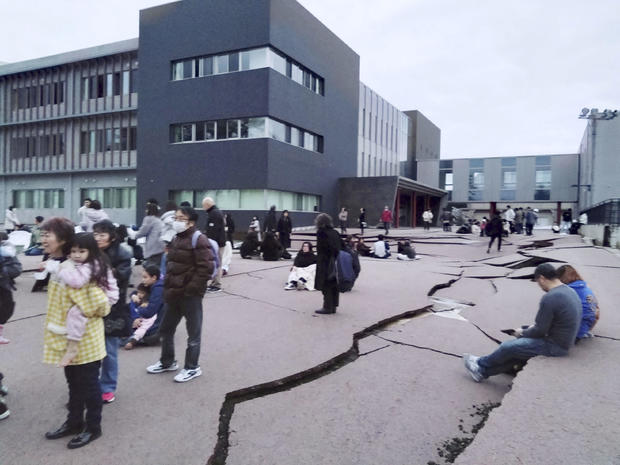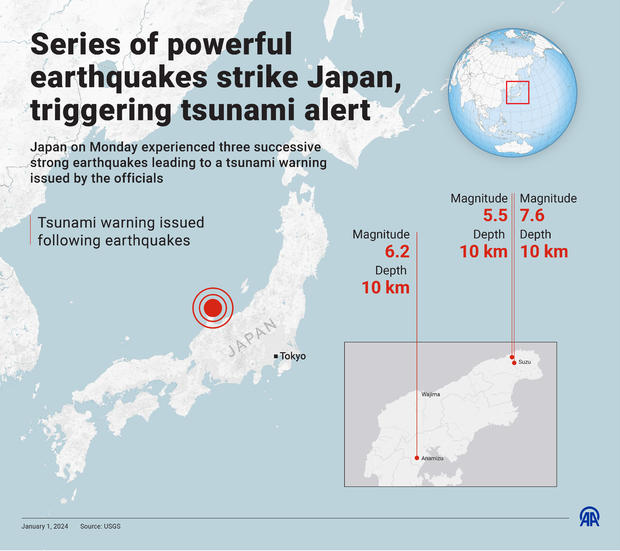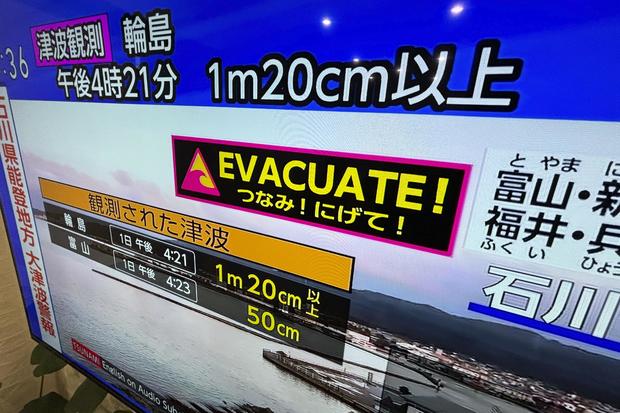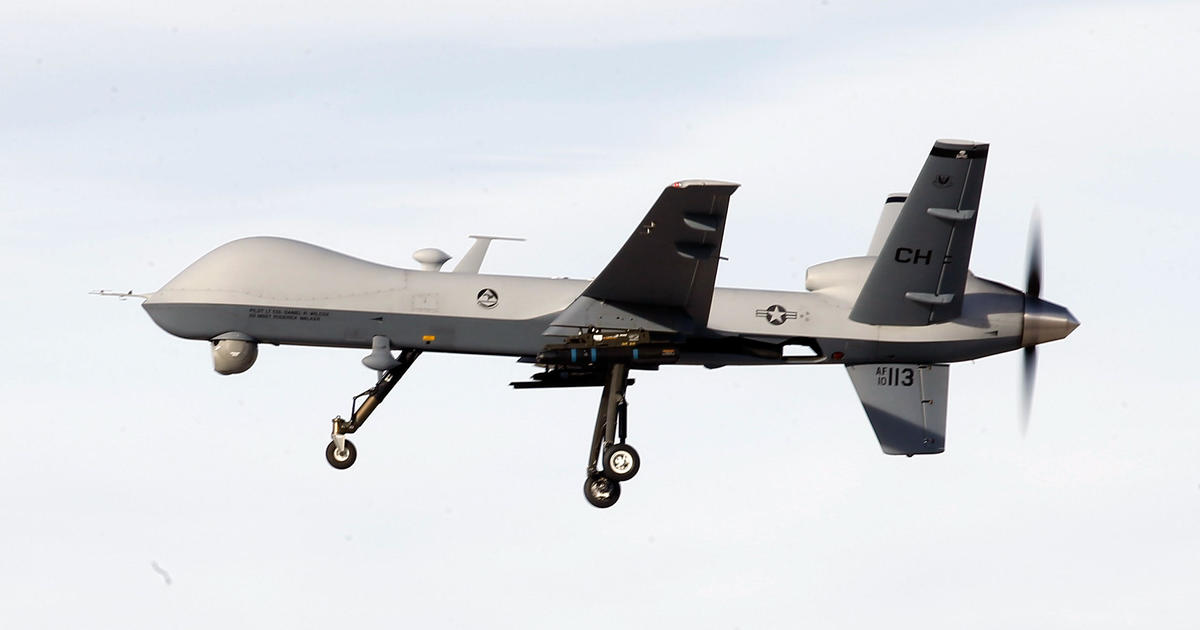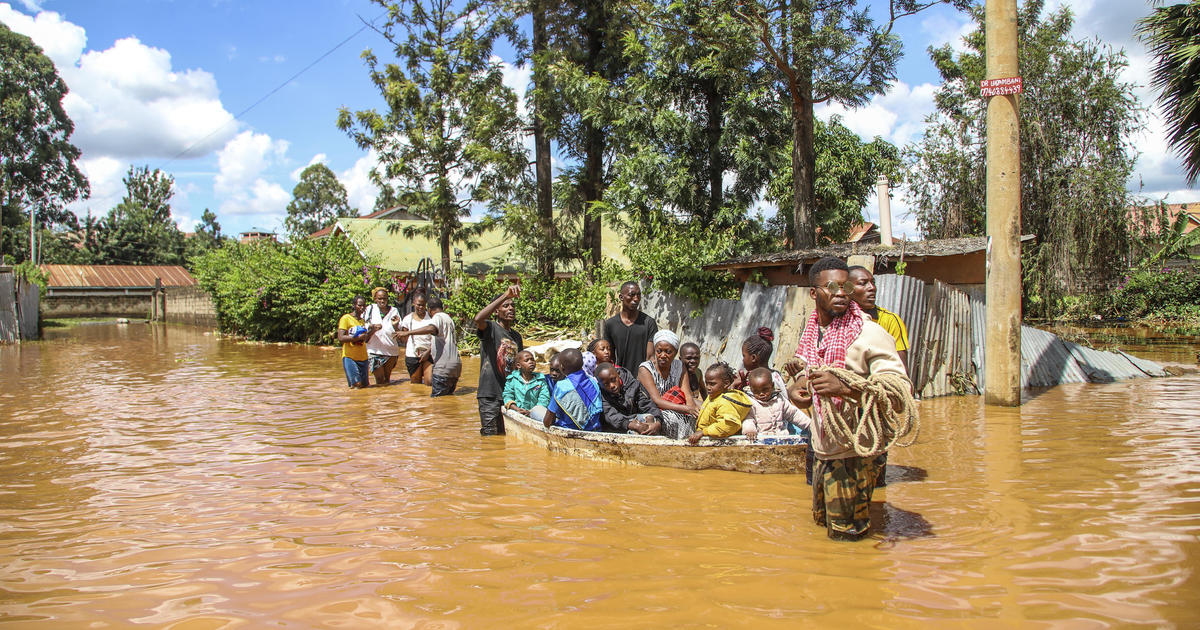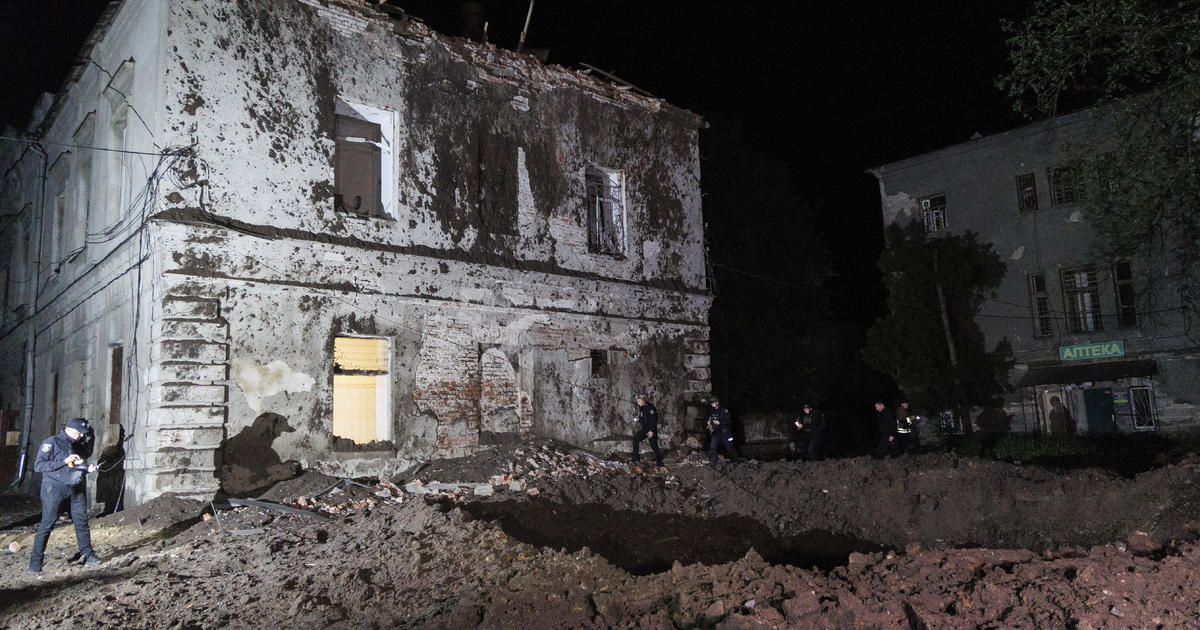Powerful earthquakes off Japan's west coast prompt tsunami warnings
A series of powerful earthquakes off central Japan's west coast damaged homes, started a fire, prompted tsunami warnings and left tens of thousands without power Monday as residents were urged to seek higher ground.
Four people were confirmed dead in Ishikawa, according to prefecture officials. Police said they were investigating two other reported deaths. Public broadcaster NHK reported at least eight deaths and 30 injuries, including people who fell while trying to flee.
"Saving lives is our priority and we are fighting a battle against time," Prime Minister Fumio Kishida said. "It is critical that people trapped in homes get rescued immediately."
The Japan Meteorological Agency said the Noto region, on the western side of Japan's main island of Honshu, was hit by a rapid series of quakes — about 20 in total — starting with a 5.7 magnitude temblor at 4:06 p.m. local time.
That was followed by a major 7.6-magnitude quake just four minutes later, then a 6.1 magnitude temblor at 4:18 p.m., a 4.5 magnitude one at 4:23 p.m., a 4.6 magnitude quake at 4:29 p.m., and a 4.8 magnitude quake at 4:32.
The first tsunami waves, around 4 feet high, hit Ishikawa prefecture's Wajima port about an hour after the quakes struck. The "major tsunami warning" issued immediately after the powerful quakes — meaning waves of up to 16 feet — was later downgraded to a tsunami warning, but officials warned people not to try going home, with waves of up to 3 meters (10 feet) anticipated.
All tsunami warnings were lifted as of early Tuesday, local time.
Government spokesman Yoshimasa Hayashi stressed earlier that it was critical for people in coastal areas to get away from the oncoming tsunami.
"Every minute counts. Please evacuate to a safe area immediately," he said.
People returning to get their wallets and other belongings have been known to be swept away and drowned even hours after the first evacuation warning. People were evacuated to stadiums, where they will likely have to stay for a few days.
Presenters on the national broadcaster NHK urged people in the region to leave everything behind and move quickly to higher ground.
"Hazardous tsunami waves from this earthquake are possible within 300 km [about 186 miles] of the epicenter along the coasts of Japan," the Hawaii-based Pacific Tsunami Warning Center said, while the Japan Meteorological Agency warned the waves could be up to five metres high.
Power companies that operation nuclear plants in the region said they were checking for any irregularities but reported no immediate problems, and the government later appeared to confirm the safety of the plants.
"It has been confirmed that there are no abnormalities at Shika nuclear power plant [in Ishikawa] and other stations as of now," Yoshimasa Hayashi, a spokesperson for the national government said, according to the AFP news agency.
There was damage from the quakes, however, and video aired by NHK showed what appeared to be buildings collapsing in Ishikawa. The network said buildings shook all the way on the other side of Japan, in the capital Tokyo, and Yoshimasa said authorities were still checking the extent of damage in the affected regions in the west.
The Reuters news agency quoted utilities provider Hokuriku Electric Power as saying more than 36,000 households lost electricity in the Ishikawa and Toyama prefectures.
Japanese news video showed reddish smoke spewing from an area in Wajima city, in Ishikawa and Hayashi said at least six homes were damaged by the quakes, with people trapped inside. Japan's military was taking part in the rescue efforts, he said.
Bullet trains in the area were halted. Parts of the highway were also closed, and water pipes had burst, according to NHK.
Japanese media reports showed a crowd of people, including a woman with a baby on her back, standing by huge cracks that had ripped through the pavement.
President Biden said he was in touch with Japanese officials and ready to provide assistance as needed. "Jill and I are praying for the people of Japan who have been impacted by the terrible earthquake," he said in a Monday afternoon statement.
The Meteorological Agency said in a nationally broadcast news conference that more major quakes could hit the area over the next week, especially in the next two or three days.
Tsunami warnings were also issued for Japan's northernmost main island of Hokkaido and for parts of North Korea and Russia. Russian officials issued a tsunami alert for the island of Sakhalin, warning that areas across the island's west coast could be affected by the waves.
In nearby South Korea, the weather agency urged residents in some eastern coastal towns to watch for possible changes in sea levels. Tsunami waves that hit later later can be bigger than the initial ones.
A huge earthquake and tsunami struck northeast Japan on March 11, 2011, devastating a vast swathe of the country's coastline and triggering nuclear reactor meltdowns in Fukushima.
